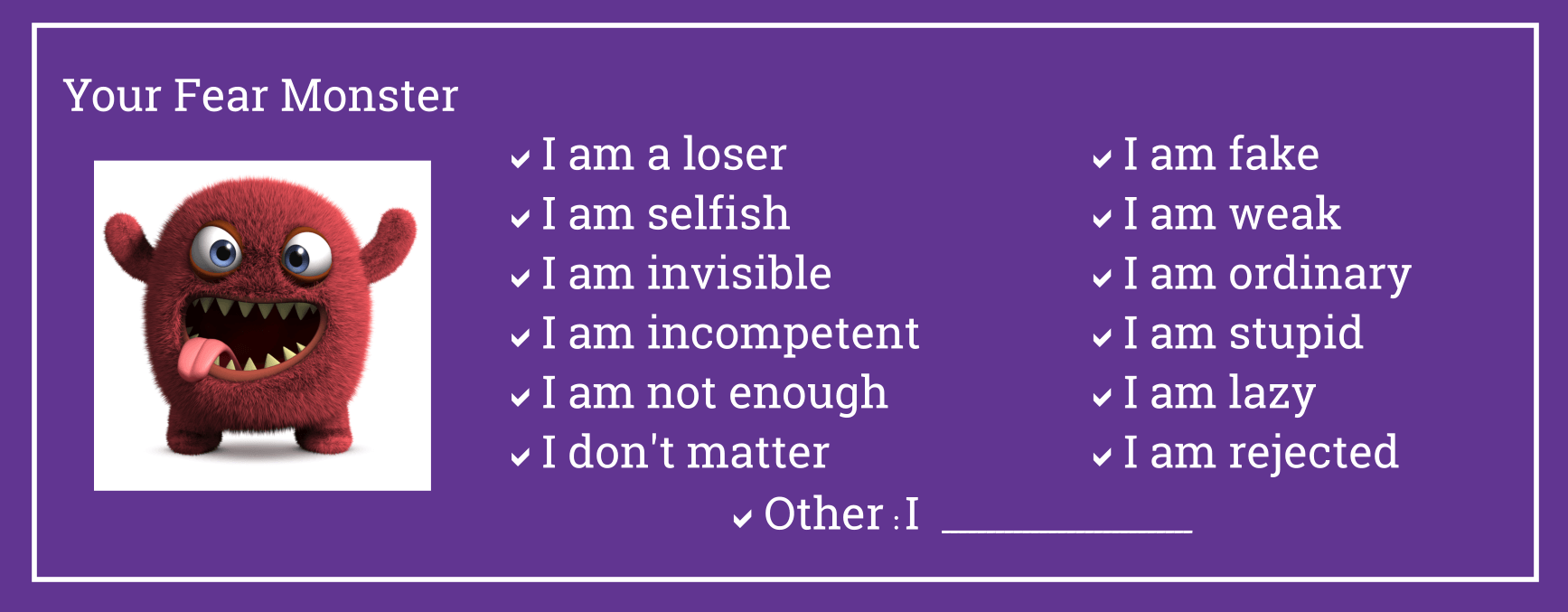Discover What’s Amazing About Vulnerability!

Vulnerability – what bubbles up for you when that topic comes up?
Being vulnerable is scary. It feels risky and uncomfortable.
Trust me, those feelings are magnified when you lead or a write. I’ve been there!
Leaders are out front and guiding the way – the one everyone looks to. Admitting that you don’t have all the answers and owning mistakes isn’t easy and it feels vulnerable.
My Own Vulnerable Feelings
For more than 30 years, I wrote and published Bible curriculum for preschool and elementary age children. During that span of time, I authored nearly eighty volumes. I learned early on that when something is in print, it’s out there for the world to see in a permanent way. There’s nowhere to hide and that’s a very vulnerable feeling.
Inevitably people would point out typos or suggest ways they thought a lesson would be better. Sharing your heart, experiences, or ideas feels like you are giving a piece of yourself away. It feels very vulnerable especially when imperfections are pointed out.
If you are an author or blogger, I know you get exactly what I’m talking about. Writing opens you up to criticism and makes you a target, or at least that’s how it feels.
When I’m vulnerable, vulnerability seems a lot less amazing.
Other Vulnerable Authors
As a voracious reader, I am drawn to and appreciate writers who choose to be wildly vulnerable. Authors willing to share the good, bad, and the embarrassingly ugly. Gifted writers who allow their humanness to spill out onto the pages.
Their transparency enables me to connect with them, relate, and even feel less alone in my own struggles. Those are the authors I get excited about reading. Their books are the ones I look forward to devouring when a new book is unveiled.
A few vulnerable authors I appreciate: Rebekah Lyons, Ann Voskamp, and Michele Cuchatt.
When I see vulnerability in others it is very attractive!
Yet, as much as I appreciate vulnerability in others, and recognize how amazingly beneficial it is, even if it’s hard for me!
I don’t think I am alone!
What Is Vulnerability?
Brené Brown describes vulnerability this way in The Atlas of the Heart:
Vulnerability is the emotion that we experience during time of
uncertainty, risk, and emotional exposure.
You don’t have to be a leader or writer to know that life is full of uncertainty, risk, and emotional exposure!
It’s nearly impossible to do what you do successfully void of vulnerability. In fact, Brené goes on to say that “vulnerability is the prerequisite for all of the daring leadership behaviors. If we can’t handle uncertainty, risk, and emotional exposure in a way that aligns with our values and furthers our organizational goals we can’t lead.”
Wow!
But here’s my favorite part: “Vulnerability is not weakness; it’s our greatest measure of courage.”
Another Way to Look At Vulnerability
Vulnerability is sharing the real you – not who you think others want to see. It’s about owning your strengths in the same way that you own your weaknesses. Asking for help, admitting you don’t have all the answers – that’s being vulnerable.
Being transparent – not hiding the real you – that’s vulnerability. Being vulnerable is not sharing your business with everyone you meet. It’s sharing what’s important, what you are really feeling, with the right people. Putting pretenses aside and choosing to not hide what’s relevant in the moment.
Vulnerability is not about performing or protecting. In fact, vulnerability without boundaries leads to disconnection, distrust, and discouragement.
What About Fear & Vulnerability?
As I mentioned above, what’s curious about vulnerability is that while I find your vulnerability quite appealing, I resist being vulnerable myself. Perhaps early on you learned to protect yourself by keeping your thoughts and feelings guarded in an attempt to control situations. So often our Fear Monster is behind our unwillingness to be vulnerable. A quick reminder of possible Fear Monsters:
If you feel like you are a loser, being vulnerable would surely confirm that!
If you feel incompetent, being vulnerable would prove just how incompetent.
If you feel like you don’t matter, what’s the point of being vulnerable? It might even be used against you!
You get the idea, yet your Fear Monster is a liar, a big liar! What your Fear Monster doesn’t want you to know is that being vulnerable is actually the gateway to feeling love, respect, compassion and a host of other desirable emotions.
If you protect yourself from the negative emotions, it blocks the positive ones too! It keeps you from truly feeling connected, treasured, and loved.
What Else Blocks Vulnerability?
While fear is typically at the root, there are ways of thinking and habits you might be engaging in that limit your ability to be vulnerable. Habits like…
- Being wildly busy – no time to process or get to close to anyone.
- Self-sufficiency – not asking for help or allowing others to help you.
- Performing – trying to prove to everyone that you are worthy of love, relationship, etc.
- Doubting God’s love for you – it’s only when you KNOW that God truly loves you that you are able to be vulnerable and love others.
- Hiding because of fear, shame, or guilt – which will act as a barrier between you and others.
- Perfectionism – It’s difficult to be vulnerable and perfect at the same time! None of us are perfect.
- Being critical or being pessimistic – negativity is like a repellent that keeps people at a distance.
- Avoiding – If you are disconnected from your own feelings and don’t want to be bothered with how others feel vulnerability is unlikely.
- Blaming – Rather than being open and vulnerably sharing how you feel you blame which pushes others away.
- Being angry – a cover up and shield for your hurt, disappointment, or frustration.
Of course, this list is not exhaustive! What’s your way of side stepping the opportunity to be vulnerable?
What Makes Vulnerability Amazing?
Yes, being vulnerable is risky. There’s no guarantee how the sensitive information you share will be received. It’s baring your soul and parts of you that you might prefer to keep hidden.
Vulnerability opens the door to what your heart desires – what you’ve been longing for. As long as you resist sharing yourself, your desires will remain…desires. Plus, vulnerability…
- Opens the door to trust
- Leads to deeper connections with people
- Invites useful feedback and information that allows you to adjust your strategies
- Makes joy, creativity, love, and greater self-esteem possible
- Takes significantly less energy than protecting, controlling outcomes, and trying to be perfect
- Pulls you into the future rather than being stuck in the past
- Enables you to ask for help and that lightens your load!
- Inspires compassion rather than judgment
- Is much more winsome than a big ego, defensiveness, or someone who is guarded
- Gives others permission to be vulnerable – vulnerability begets vulnerability
Where Do I Start?
Being vulnerable is risky business, but not risky in the way you might think. The real risk is not being vulnerable and shutting yourself off from what you need to thrive!
You may resist being vulnerable because people have failed you in the past. But don’t forget that there are probably some people you have hurt simply because you’ve not been vulnerable.
Until you believe deep down that God loves you, really, really loves you, will struggle to be vulnerable. From that loved place, you are able to courageously reveal who you really are to others in healthy ways. I encourage you to spend time in God’s presence and soak in His love for you. Then begin taking small steps and share yourself more vulnerably with the people closest to you. Rather than getting resentful, angry or shutting down, take a baby step and share your true feelings – the goods ones and the bad ones. Here’s what I mean…
I feel _______________ when _________________ takes place and what I need is ______________________.
Examples:
I feel so loved when you call me every night and what I need is for you to keep on doing that!
I feel ignored when I don’t get a call from you and what I need is for you to call more often – maybe every night.
Be sure to use “I” rather than “you,” especially in the front end of this statement. ”You“ statements put the other person on the defensive.
For some examples of offering feedback in the workplace which also feels very vulnerable, click here.
With practice, being vulnerable it gets easier. It doesn’t mean it always pans out the way you want it to, but remember that’s just another opportunity for you to grow. Like investments, the greater the risk the greater the reward. The same applies to vulnerability.
How would your life and work change if you were more vulnerable?

